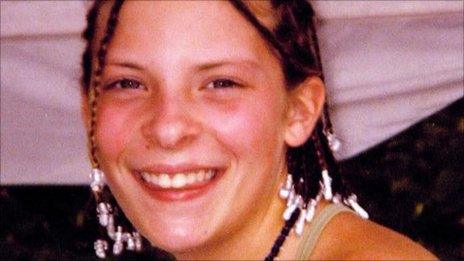Manhunt: The real-life story behind the ITV drama
- Published

ITV drama Manhunt is telling the real-life story - over three nights - of how serial killer Levi Bellfield was brought to justice.
The policeman who pieced together the evidence to catch him, Det Ch Insp Colin Sutton, is played on screen by Martin Clunes.
Bellfield was convicted of killing three young women in south-west London and Surrey in the early 2000s.
Here's what happened in the case that is being dramatised on screen.
Who were the victims?
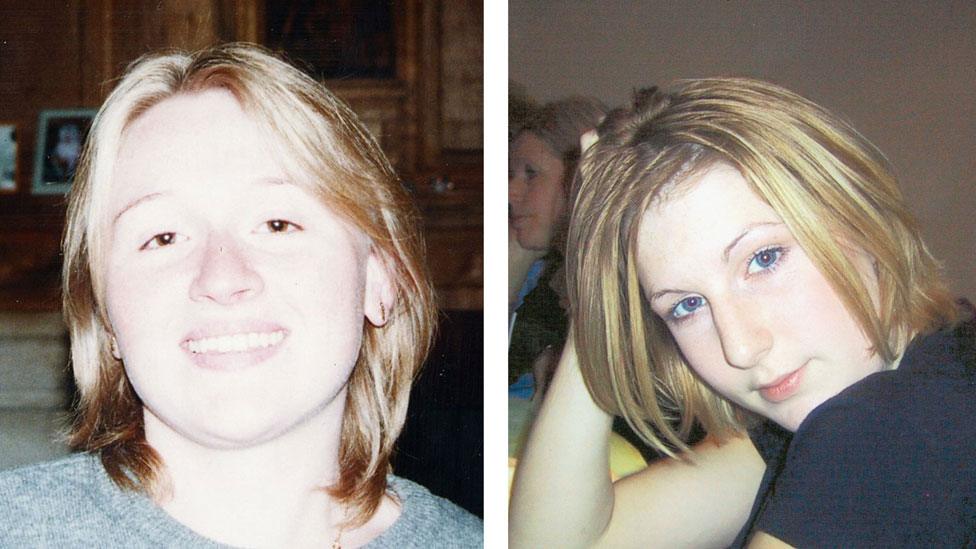
Amelie Delagrange, left, and Marsha McDonnell
Amelie Delagrange was a 22-year-old French student who had been living in Twickenham for three months when she was killed on 19 August 2004.
She had been working at a patisserie in Richmond and was in the UK to further her studies, as she had a "passion for the English language". She had a close circle of friends and a boyfriend also living in the UK.
Amelie, from Amiens, was a "good student, sensible and never gave her parents any problems", her mother Dominique Delagrange said.
The previous year, Marsha McDonnell had been murdered, on 4 February.
The 19-year-old was on a gap year before starting university, having completed her A-levels, and was planning a trip to Australia.
Marsha had been working in a gift shop in Kingston, Surrey, on her year off. She was passionate about music, and a music room at a children's hospice was named after her following her murder.
Milly Dowler was 13 when she was murdered in March 2002.
She was a Year 9 pupil at Heathside School in Weybridge, Surrey, and lived in nearby Walton Park with her parents and sister.
Milly was described as being a pretty, popular and intelligent teenager, with friends saying she was "always trying to make people laugh and smile".
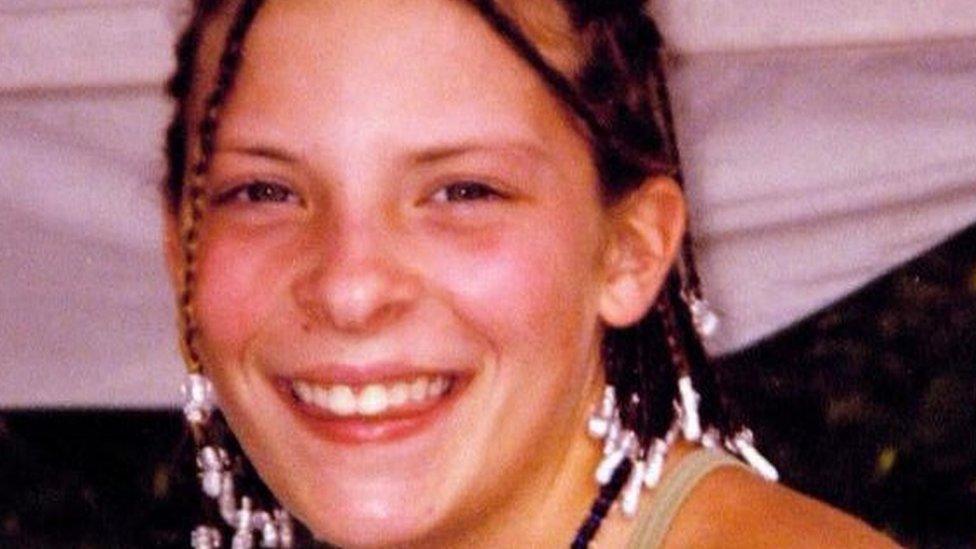
Milly Dowler was pretty, popular and intelligent
What happened to the three victims?
Det Ch Insp Colin Sutton became involved in the case when Amelie Delagrange was murdered.
At the time, arrests had already been made, external in connection with the murder of Marsha McDonnell. The link to Milly Dowler's death had not yet been found.
There were fears a serial killer was on the loose. But it was the investigation into Amelie's death that would lead to the jigsaw pieces coming together that led to Bellfield being caught.
Amelie's body was found on Twickenham Green where she was attacked after a night out with friends. Having missed her bus stop, she was walking home across the green.
She had been struck over the head with a hammer, as had Marsha McDonnell.
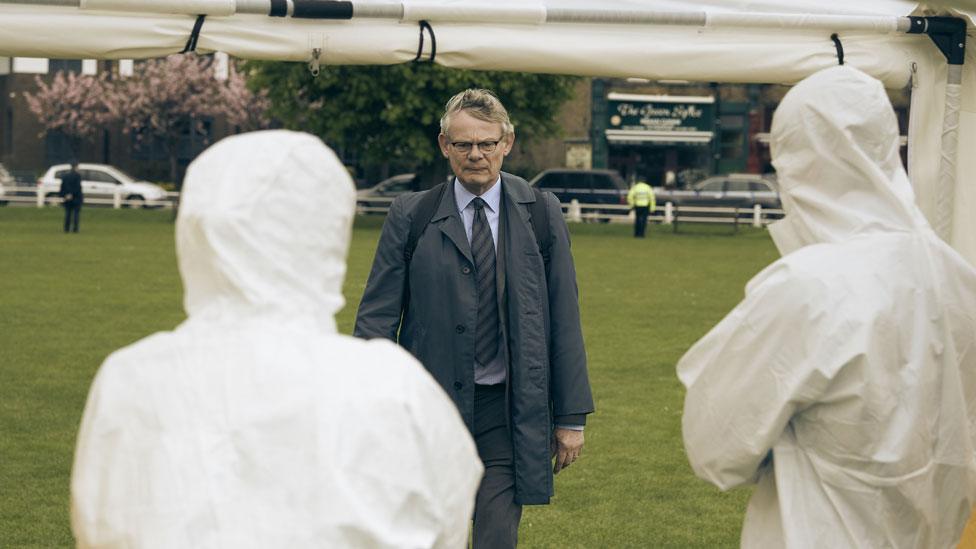
Manhunt began with the investigation into the murder of Amelie Delagrange
Marsha had been to the cinema with friends on the night she was attacked, just yards from her home in Hampton where she lived with her parents, sisters and brother. She had got off a bus and was walking back home when she was killed.
It was only when Bellfield was convicted of the two women's deaths in 2008 that he became the key suspect, external in the unsolved murder of Milly Dowler.
Milly had been walking home from a railway station after school when she was kidnapped. Her body was later found 25 miles away in Yateley Heath, Hampshire. It later emerged she had been strangled.
Bellfield also attempted to murder Kate Sheedy, external, 18, in May 2004 by running her over twice in a car near her home in Isleworth, west London. She survived her injuries and went on to give evidence against Bellfield.
How was Levi Bellfield caught?
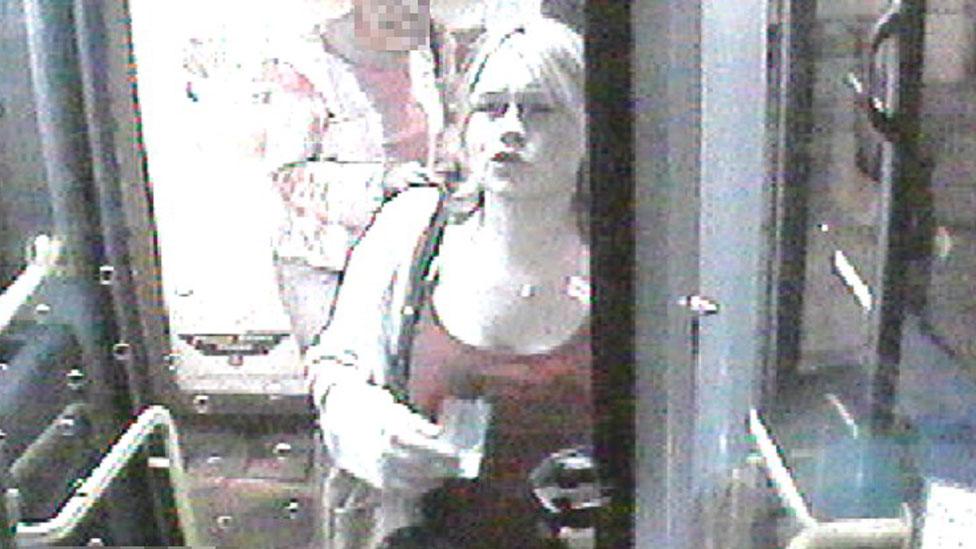
CCTV of Amelie boarding a bus on the night she was killed
Colin Sutton says that, when he was tasked with leading the team of detectives finding out who killed Amelie, he had to put out of his mind the similarities with Marsha's murder.
"It was very much my view that whatever had gone on in the past, the best chance of solving the crimes was with the most recent, with Amelie," he said.
"If we got a suspect, we would go back and look at others and see if he fitted in. It turned out quite well."
As Manhunt showed, CCTV played a crucial role in the case. It included CCTV of Amelie Delagrange on the bus that took her to Twickenham Green, after she missed her stop - and images of Marsha McDonnell on the bus home.
He said: "All I had was a dead girl in the middle of Twickenham Green. We decided what we would do was search out every piece of CCTV for miles around."
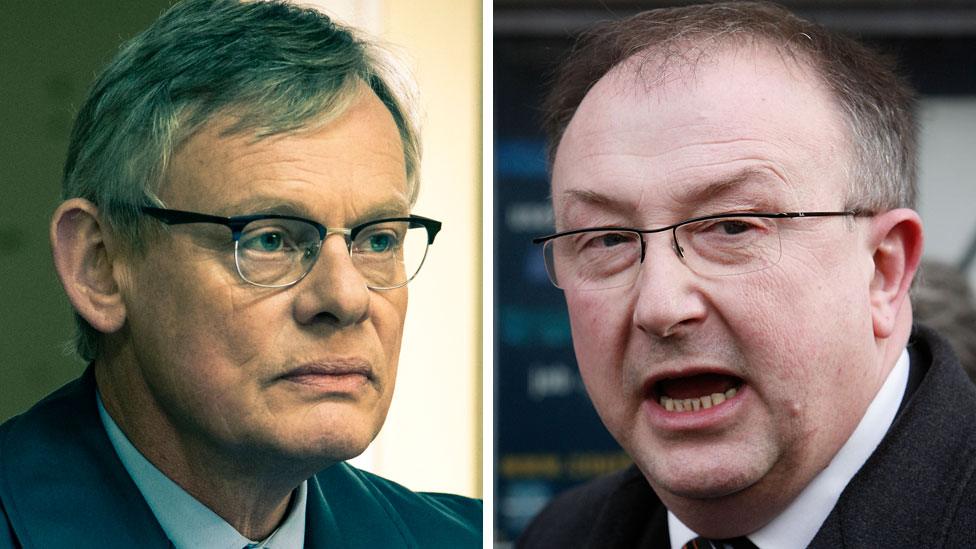
Martin Clunes and Colin Sutton, the man he portrays in the drama
In total, 2,000 hours of footage were viewed by detectives - and the drama shows how colleagues questioned Colin Sutton's decision to allocate so many of his staff to that laborious job.
But as viewers saw in the first episode, a key breakthrough in the case came from a team reviewing CCTV taken from external cameras on passing buses. Their footage showed a white van had arrived at the green just before Amelie was killed, and stayed for eight minutes before being driven off.
But they could not track down the van, eliminating 26,000 Ford Courier vans - like the one seen in the footage - from their inquiry.
The breakthrough came after a woman suggested her ex-boyfriend was a potential suspect. His name was Levi Bellfield.
He was a wheel clamper who owned a white van. It later emerged he also owned a Toyota Previa with blacked-out windows - like the one that ran over Kate Sheedy. He was arrested in November 2004, when he was found hiding in his loft.
What was it like reporting on the case?
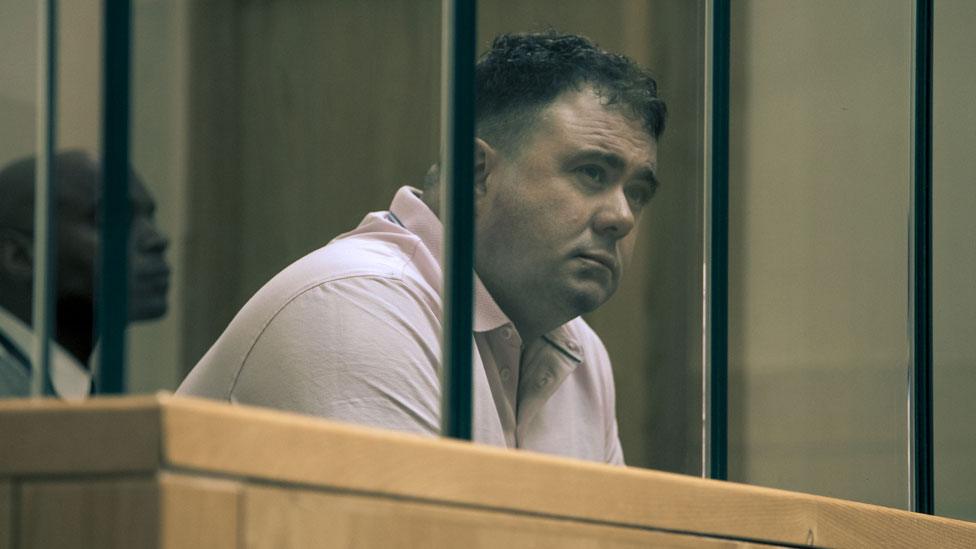
In the drama, Celyn Jones appears as Levi Bellfield
BBC Look North presenter and reporter Alison Freeman was working for the BBC News website at the time, and interviewed Kate Sheedy for an article., external
"The murders struck a particular chord with me and one of my colleagues as we were both young women living in south London at the time.
"Over the past few weeks I've seen adverts for the series about the manhunt for Levi Bellfield. Because covering the murders is something that has stayed with me, I felt really keen to watch it.
"I even sent a text to my former colleague just before the start of the programme to see if she was watching too - even though we live hundreds of miles from each other now.
"When police told us they were investigating whether there was a link between Amelie's murder and Marsha McDonnell's death we weren't surprised as they both stood out as really unusual murders.
"No apparent motive or overtly sexual element. Just violent attacks on young women walking home at night - as any of us might do.
"I'd only interviewed Kate Sheedy a week or so before Amelie's death. She was such a strong, determined and dignified young woman.
"She fought to survive horrific injuries, whilst unable to understand why anyone would do something like that. It was a horrifying thought that it could have happened to anyone."
What's happened since?
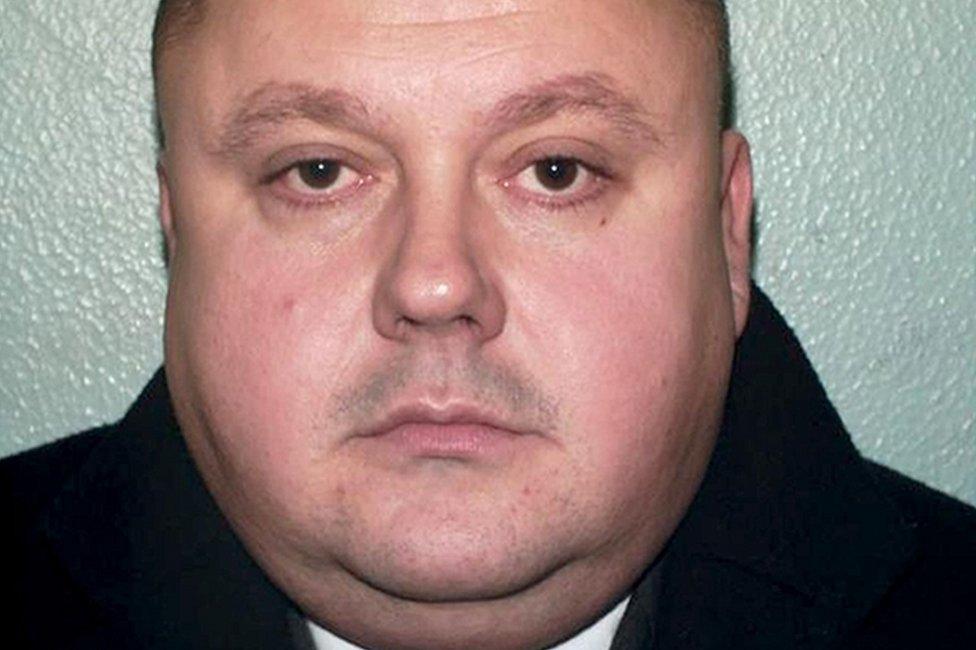
Levi Bellfield, who now calls himself Yusuf Rahim, will never be released from prison
Levi Bellfield was given a whole-life prison sentence in June 2011 after being found guilty of murdering Milly Dowler.
He was already in jail for the murders of Amelie and Marsha and the attempted murder of Kate at the time.
It was claimed last month that Bellfield, now 50, was part of a child sex gang that has never been brought to justice.
Bellfield, who now calls himself Yusuf Rahim, was linked in a report to six men accused of paedophilia, murder and grooming.
There were also reports in 2017 that Bellfield had allegedly confessed to the murder of Lin Russell and her six-year-old daughter Megan in Kent, in 1996.
Police had previously said they had found no link between Bellfield and any other crimes, despite detectives having said at the time of his conviction that he was behind 20 other attacks on women.
Colin Sutton, who is now retired from the force, wrote a book on the case, on which the ITV drama was based.
He said everything has been done with "full disclosure" to the victims' families, and that he had "real encouragement" from some.
He told the Radio Times, external: "They knew the story of the effort that went into the investigation and how hard we worked.
"And it was the best we could do for them because we couldn't bring their loved ones back, but you can treat them with decency and respect and do your best to bring the perpetrator to justice."
- Published30 December 2018
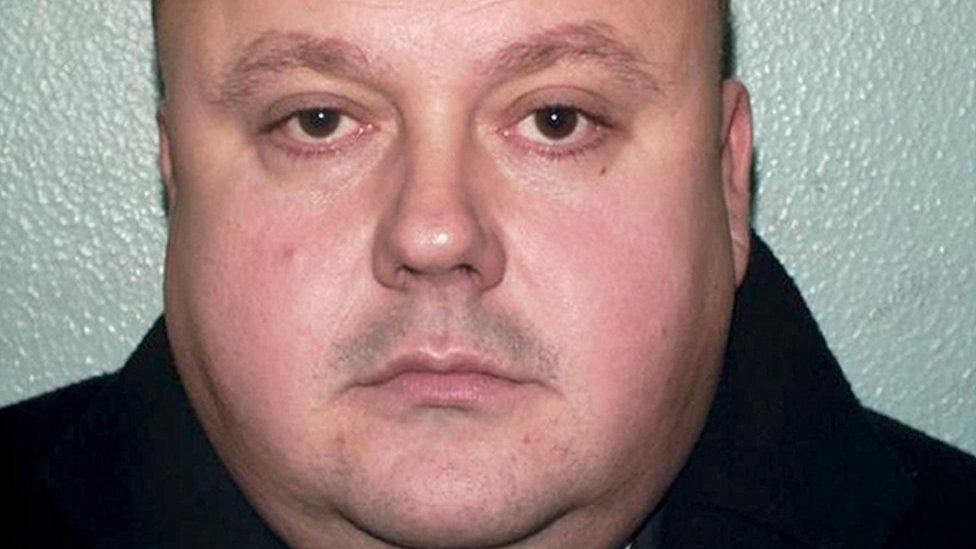
- Published29 November 2017

- Published23 June 2011
